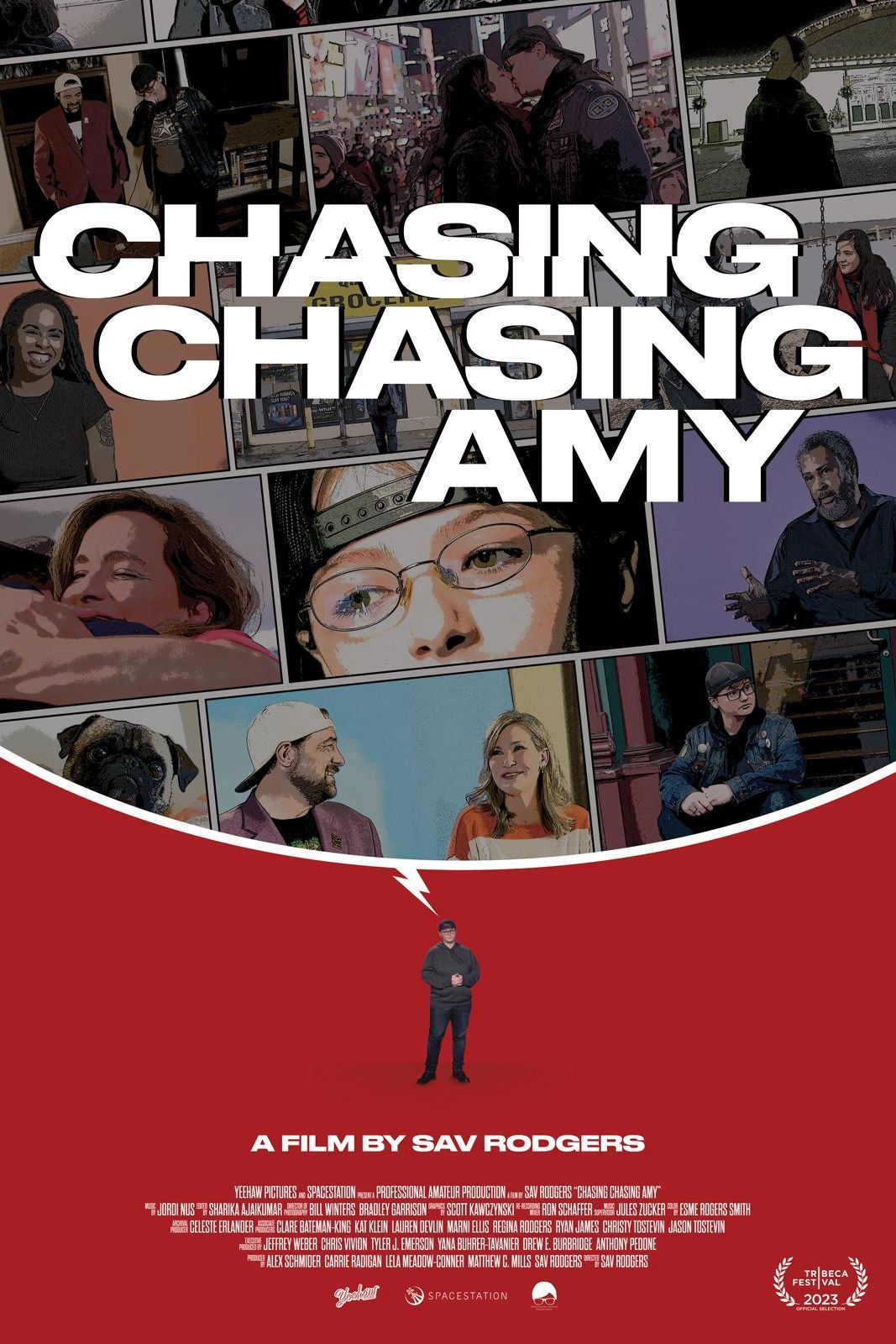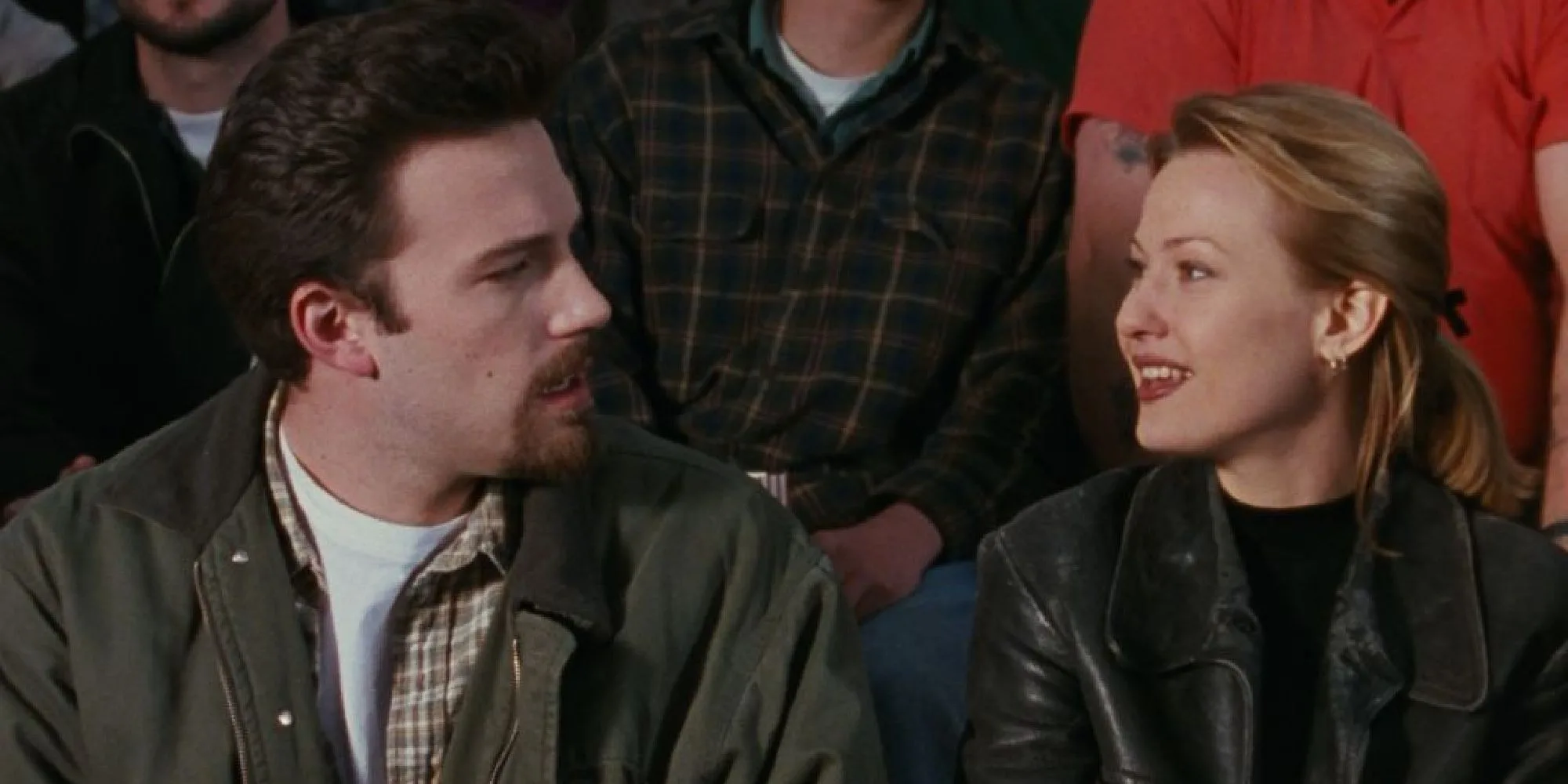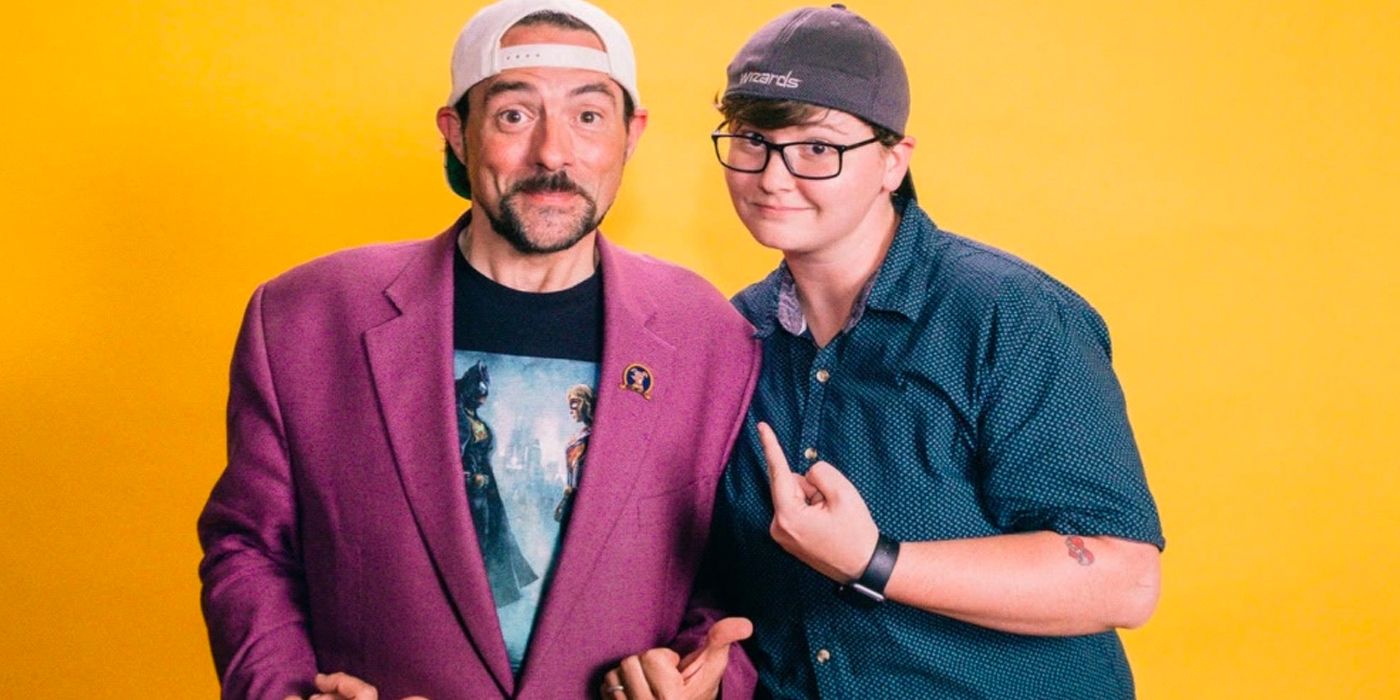Could the 1997 romantic comedy Chasing Amy be made today? Depending on who you ask, you'll probably get many different answers. Directed by Kevin Sm
Could the 1997 romantic comedy Chasing Amy be made today? Depending on who you ask, you’ll probably get many different answers. Directed by Kevin Smith and functioning as a loose continuation of Clerks and Mallrats, Chasing Amy sees lovestruck comic book artist Holden (Ben Affleck) fall head-over-heels for the confident and smooth-talking Alyssa (Joey Lauren Adams). There’s just one problem – Alyssa is an outspoken lesbian who, despite wanting a genuine friendship with Holden, has seemingly no romantic interest in men. What follows is a journey of self-exploration and sexuality that will undoubtedly surprise both of them. As for whether Chasing Amy could be made today, my answer is a resounding “absolutely not,” but that doesn’t mean the film doesn’t have value, largely as Kevin Smith’s most emotional movie by far. While it’s a product of its time with some archaic terminology and plot points, it still feels ahead of its time in exploring fluid sexuality, at least in terms of accessible filmmaking in the 1990s.
Despite the complicated feelings I and many others have about the contentious film,Chasing Amy was a massive success for Smith when it was first released. It performed very well with critics, even getting a glowing endorsement from the legendary Roger Ebert. It also went on to make a total of over $12 million at the box office on a reported budget of only $250,000. Despite being a significant critical and financial hit, Chasing Amy is still a very divisive piece, particularly by members of the queer community that are being represented in the film. Some praise Chasing Amy as an ahead-of-its-time classic that boldly portrays fluid sexuality in a way that most movies either couldn’t or wouldn’t. Others criticize Chasing Amy as being an archaic experiment that promotes harmful stereotypes about queerness.
Even the most experienced documentarians would likely sidestep these hard-hitting and culturally relevant questions for a celebratory documentary about a renowned film. That is not what first-time feature filmmaker Sav Rodgers does with his engaging directorial debut, Chasing Chasing Amy, which offers an straightforward and multifaceted look into the legacy of a film that is very crucial to him. Instead of ignoring the valid concerns the film has received over the years, Chasing Chasing Amy puts them front and center. This all occurs in tandem with Sav eloquently explaining to the audience how the 1997 dramedy dramatically changed his life.
What is ‘Chasing Chasing Amy’ About?
Sav Rodgers’ long attachment to Chasing Amy began with the Marvel superhero film Daredevil, which quickly inspired a quest to watch every movie featuring Ben Affleck. That quest led Sav to stumble upon Chasing Amy, and the film impacted the aspiring filmmaker so much that Sav credits it as the film that saved his life, given his history as a closeted teenager whom his peers regularly bullied. This is a story Sav tells in a TED Residency talk that went viral, catching the attention of figures like Marvel star Brie Larson, original Chasing Amy star Ben Affleck, and Chasing Amy writer and director Kevin Smith, who promptly reached out to Sav after hearing his story. What follows is a detailed look into not just Chasing Amy, but also into how it influenced the life of Sav Rodgers.
Something that really comes through in Chasing Chasing Amy is Sav’s profound relationships with his feature’s subjects. Kevin Smith has always had a reputation as a relatable and down-to-earth filmmaker, and that reputation continues with his standout conversations with Sav in the documentary. What could have very easily come across as a lifelong film fan hero-worshipping a director instead feels like a meaningful dialogue between two filmmaking peers. Another stand-out subject of the film is Sav’s partner, Riley Rodgers, and how she shaped Sav’s life in and out of filmmaking. Their onscreen chemistry is absolutely gripping and is something that not even the most experienced romantic screenwriters could replicate.
At its core, Chasing Chasing Amy is a more profound look into the highs and lows of a filmmaker’s life and how the chance discovery of a resonating movie shaped him into the man he is today. As the title implies, Chasing Chasing Amy is primarily about the 1997 film, but it’s also about Sav. Despite being the filmmaker behind the camera, Sav’s voice has such a level of authenticity that he feels just as much of the interviewee as he is the interviewer. This refreshing level of honesty is made even more impressive by the dramatic life changes Sav is going through while making the film, which still feels front and center throughout the roughly 90-minute runtime.
‘Chasing Chasing Amy’ Offers Multiple Perspectives on a Contentious Film
When Chasing Chasing Amy begins with Sav asking, “Do you understand why I love this movie?,” the very first answer he gets in the documentary is an immediate “No.” Many, both in and outside of the queer community firmly believe Chasing Amy promotes concepts that could be considered derogatory toward those who identify as LGBTQ+. It’s not solid to understand why. Several of Chasing Chasing Amy‘s subjects point out the contentious scene of the original film where Alyssa falls for Holden, and the two romantically embrace and kiss in the rain, seemingly implying that lesbian women can be turned straight after a dramatic monologue from a heterosexual man.
Sav’s documentary doesn’t dispute those arguments. In fact, it embraces them, prominently showcasing these concerns despite Sav’s positive feelings for the movie. While Sav continuously and repeatedly praises Chasing Amy as a movie where its characters proudly showcase their fluid sexualities, he never once claims that Chasing Amy is a perfect film that all should love. He even admits that he didn’t know about other more profound (though admittedly less culturally prominent) films about queer identity released in the same period that may have served as a better introduction to the LGBTQ+ community. The point that Sav is making isn’t that Chasing Amy is the poster child for LGBTQ+ storytelling – it’s just the first movie that showed Sav that those types of stories did exist.
This duality is also showcased in a standout sequence featuring Kevin Smith and Joey Lauren Adams being interviewed, each of whom has a different, complicated relationship with Chasing Amy‘s legacy. It’s a pivotal moment that signifies a solid third act, but it’s also one of the few moments where Chasing Chasing Amy briefly loses focus in a comparison of how Kevin Smith and Joey Lauren Adams remember their controversial distributor, Harvey Weinstein. It’s not that discussing the various crimes of the disgraced entertainment executive isn’t worth exploring; it’s just that, in the context of Chasing Chasing Amy, it doesn’t feel entirely relevant to the documentary’s themes of self-acceptance, representation and meaningful cinematic discourse.
‘Chasing Chasing Amy’ Provides a Much-Needed Perspective on Film Discourse
A memorable quote in Chasing Chasing Amy comes from The Mary Sue writer Princess Weekes, who says, “Something that’s problematic can still mean a lot in your development.” In an era where film discourse on the internet is consistently restrained to binary concepts like “it’s just good” or “it’s just bad,” Chasing Chasing Amy is an impressive reminder that discussions on the art of filmmaking can be much more nuanced. An even more impressive theme that Sav Rodgers’ feature film debut showcases is the importance of meaningful representation, which is a powerful method of giving marginalized individuals a voice, even if meaningful representation isn’t the primary goal of a film. The final scene of Chasing Chasing Amy almost feels like Sav bidding a bittersweet farewell to this chapter of his life. Now, Sav Rodgers will be saying hello to the start of a promising filmmaking career.

‘Chasing Chasing Amy’ expertly explores the impact of Kevin Smith’s film with a refreshing level of fairness and nuance.
- Sav Rodgers doesn’t try to sanitize ‘Chasing Amy’s legacy.
- Offers many nuanced perspectives on a controversial film.
- Shares profound themes on self-acceptance and representation.
- ‘Chasing Chasing Amy’ sometimes loses focus on the doc’s core ideas.
Filmmaker Sav Rodgers embarks on a personal journey in Chasing Chasing Amy, a documentary that delves into how Kevin Smith’s 1997 film Chasing Amy profoundly impacted his identity as a queer youth in Kansas.
- Release Date
- June 8, 2023
- Director
- Sav Rodgers
- Cast
- Kevin Smith , Guinevere Turner , Joey Lauren Adams , Scott Mosier , Sav Rodgers , Andrew Ahn , Kevin Willmott , Trish Bendix , Princess Weekes , Regina Rodgers
- Runtime
- 95 Minutes
Chasing Chasing Amy is now playing in theaters. Click below for showtimes.


COMMENTS